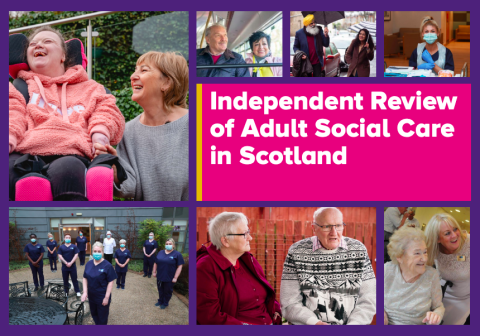If not now, when? If not this way, how? And if not us – who?
Dee Fraser, Iriss CEO, shares her views on the Independent Review of Adult Social Care.
Donella Meadows1 said that both the hardest and most influential change you can make in a system is to change its mindset. That means turning round the whole complex tangle of people, ideas, cultures, bureaucracy, training and practice, to face in a fundamentally different direction.
Mindset change is something most reviews (and indeed this writer) run away from because it is difficult, time consuming and a bit abstract. It’s not an easy sell to either the public or policymakers.
Think about the last time you changed your mind… system mindset change is like that, at scale, with lots of people who don’t agree with you in a complex network of organisations, competing drivers with towering piles of processes, rules, and ‘the way we do things round here’ to contend with too.
So I was absolutely delighted to see mindset change front and centre in the recent Independent Review of Adult Social Care. What’s more, the authors don’t get stuck feeling overwhelmed by the complexity of the task – they move swiftly to practical steps to do this through the development of a new social covenant. Going beyond small improvements this brings people, organisations and the state together to set aside organisational self interest in favour of a ‘relentless focus’ on improving how we work with and for people. Supporting this change in mindset the review makes thoughtful cross-system recommendations for change in some of the most challenging areas of the system. This clearly demonstrates how closely the panel have listened to people and organisations.
I particularly welcome the call to work with and for people in the design, purchasing and planning of support (also known as 'commissioning and procurement'.) It's no secret that prior to Iriss I spent almost a decade talking to anyone who would stay still long enough about how to do procurement better. Great to see then the urgent call to finally make the move from competition to collaboration through provider networks and greater use of alliancing.2 The strong focus on making use of the tools we already have (e.g. Fair Work) to demonstrate tangibly how we value the social care workforce also makes for hopeful reading.
The long-awaited unpacking of the idea of the National Care Service shows a welcome balance between national aspects (standards, portability of care budgets etc.) and the recognition that to support choice and make sure supports fit well with communities that local action is also needed.
As an organisation whose business is using knowledge to support change and innovation, we at Iriss were delighted to see the recognition that without good support for implementation and innovation these recommendations won’t jump rhetoric- reality gap. All of us in social care support have learned the hard way about how great intent in policy making goes off course when it meets the reality of practice on the ground. We are genuinely excited and appreciative to see a place for our work in the review and look forward to getting started!
Not all the recommendations will be welcome for everyone – we recognise that any substantial change can mean significant loss for some. However, if we can hold our nerve; be truly guided by that new social covenant and provide intelligent support for change we might, just might, get the reform we have called for, for so long.
Review report and recommendations.


